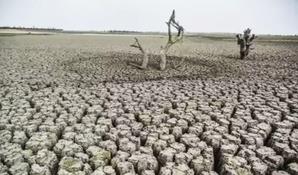
Nearly 200 Countries Commit To Prioritise Land Restoration, Drought Resilience
The nations also made significant progress in laying the groundwork for a future global drought regime, which they intend to complete at COP17 in Mongolia in 2026.
Significantly, more than $12 billion was pledged to tackle desertification, land degradation and drought around the world, especially in the most vulnerable countries.
These were the outcomes of the 16th Conference of the Parties (COP16) to the United Nations Convention to Combat Desertification (UNCCD).
After two weeks of intense negotiations on how to tackle land degradation, desertification and drought, the largest and most inclusive United Nations land conference wrapped up in Riyadh in Saudi Arabia.
Among the main agreements reached at COP16 were the creation of a Caucus for Indigenous Peoples and a Caucus for Local Communities to ensure that their unique perspectives and challenges are adequately represented; a continuation of the Convention's Science-Policy Interface to strengthen science-based decision-making; and the mobilisation of private sector engagement under the Business4Land initiative.
COP16 was the largest and most diverse UNCCD COP to date: it attracted more than 20,000 participants, around 3,500 of them from civil society, and featured more than 600 events as part of the first Action Agenda to involve non-state actors in the work of the convention, an official statement said.
In her statement, United Nations Deputy Secretary-General Amina J. Mohammed emphasised: "Our work does not end with the closing of COP16. We must continue to tackle the climate crisis, it is a call to action for all of us to embrace inclusivity, innovation, and resilience.
“Youth and Indigenous peoples must be at the heart of these conversations. Their wisdom, their voices, and their creativity are indispensable as we craft a sustainable future with renewed hope for generations to come.”
In his closing remarks, COP16 President, Saudi Arabia's Minister of Environment, Water and Agriculture Abdulrahman Alfadley, said the meeting marked a turning point in raising international awareness of the pressing need to accelerate land restoration and drought resilience.
"The Kingdom's hosting of this important conference reflects its ongoing commitment to environmental issues and sustainable development. It reaffirms its dedication to working with all parties to preserve ecosystems, enhance international cooperation to combat desertification and land degradation, and address drought.
"We hope the outcomes of this session will lead to a significant shift that strengthens efforts to preserve land, reduce its degradation, build capacities to address drought, and contribute to the well-being of communities around the world."
During the conference, participants heard that UNCCD estimates that at least $2.6 trillion in total investments are needed by 2030 to restore more than one billion hectares of degraded land and build resilience to drought.
This equals $1 billion in daily investments between now and 2030 to meet global land restoration targets and combat desertification and drought.
New pledges for large-scale land restoration and drought preparedness were announced, such as the Riyadh Global Drought Resilience Partnership that attracted $12.15 billion to support 80 of the world's most vulnerable countries in building their resilience to drought, including a $10 billion pledge from the Arab Coordination Group.
The Great Green Wall (GGW), an African-led initiative to restore 100 million hectares of degraded land, also mobilised EUR 11 million from the Italian government for landscape restoration in the Sahel and EUR 3.6 million from the Austrian government to strengthen the coordination and implementation of the initiative across 22 African countries.
The drive is part of the GGW Accelerator, a UNCCD-supported effort to achieve the ambitions for a greener, more prosperous Sahel.
Additionally, the US and several partner countries and organizations announced total investments of nearly $70 million to advance the Vision for Adapted Crops and Soils (VACS).
The initiative looks to build resilient food systems grounded in diverse, nutritious, and climate-adapted crops grown in healthy soils.

Legal Disclaimer:
MENAFN provides the
information “as is” without warranty of any kind. We do not accept
any responsibility or liability for the accuracy, content, images,
videos, licenses, completeness, legality, or reliability of the information
contained in this article. If you have any complaints or copyright
issues related to this article, kindly contact the provider above.


















Comments
No comment